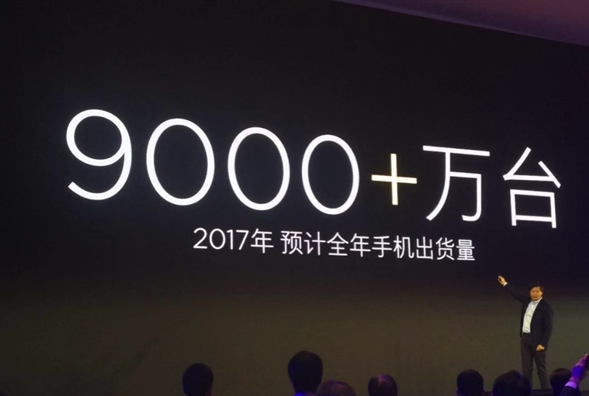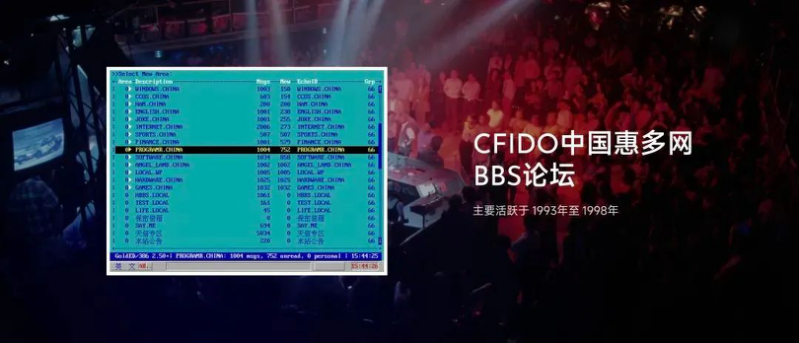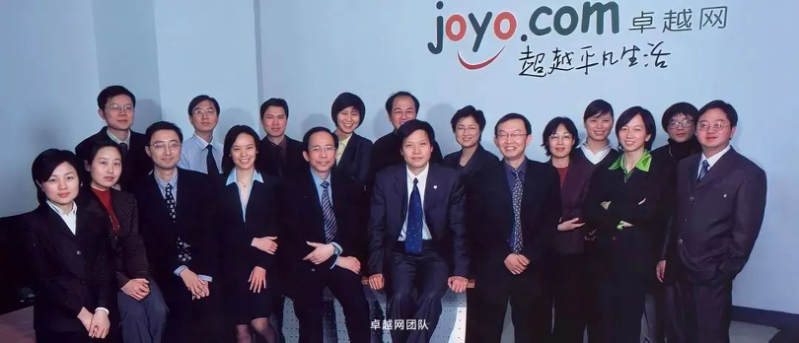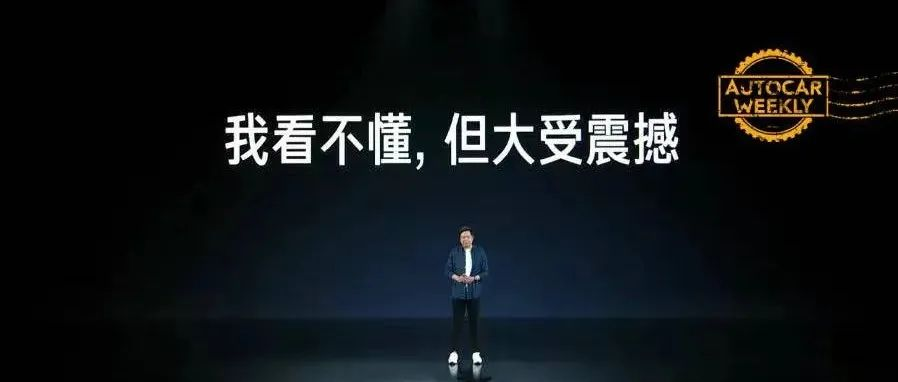Karakush
Yesterday, Lei Jun delivered his annual speech and released new products for Xiaomi’s autumn season.
His two-and-a-half-hour speech, delivered in Putonghua, tested the bladder endurance and professional ethics of automotive media.
After enduring over an hour of hype and more than an hour of showcasing products, Lei finally announced some progress on Xiaomi’s car project in the last few minutes:
- Xiaomi officially enters the electric car industry for 500 days;
- Automatic driving is established as the first breakthrough direction, and Xiaomi is determined to develop its technology stack in-house;
- The initial R&D investment is RMB 3.3 billion;
- More than 500 people have been hired to form an exclusive team, and the actual resources invested are far more than 500 people. Other R&D departments within Xiaomi Group such as AI lab, Xiao Ai, camera team have provided significant support;
- Road testing is underway throughout the country, starting with 140 test vehicles in the first phase;
- A function demonstration video was broadcasted, showcasing automatic entry onto a highway, automatic lane change and passing, unprotected U-turn and right turn, automatic detour around parked cars and accident sites, automatic navigation around a roundabout, yielding to pedestrians at a crosswalk, automatic left-turn at multi-lane intersections, as well as an integrated intelligent parking solution, including reserved parking spaces, automatic parking, and robotic arm automatic charging.
Despite the extensive content and the invitation for even more anticipation, Lei’s announcement fell short of expectations. However, this does not undermine the strategic position of Xiaomi’s car project. Lei announced that they are serious about making cars, and they will work with the same determination for ten years to achieve success.
Although their position may not be at the forefront at the moment, it will undoubtedly be a key factor in winning in the future. Xiaomi plans to continue forging ahead for the next two years, with the goal of their autonomous driving team becoming part of the first echelon in the industry by 2024.# Start with the End in Mind
If you position Xiaomi Auto at the center of the universe and look back at Lei Jun’s insights on “going through the lows of life,” the profound meaning beneath it will emerge.
It’s not just a pot of lukewarm, greasy chicken soup for the middle-aged trying to relive the past. It attempts to persuade young people who are anxious by personal setbacks and confusion that they should always believe that good things are about to happen, just like Xiaomi, Redmi, and Mijia that have been happening in your life.
In fact, it’s more like a pot of Xiaomi Congee that never forgets its original aspiration, with one hundred percent high-quality carbon water, injecting the soul endorsement of thirty years of entrepreneurship into Xiaomi Auto, which has attracted much attention, controversy, and even skepticism, and continuing to inherit and carry forward the Xiaomi Mode and ushering in a prosperous future for Xiaomi.
A pot of respect for the past and a pot of gratitude for tomorrow.

Three Stories
Comparing to Xiaomi Auto’s 500 days, Lei Jun actually told three stories:

The first story, “The Station of Zhongguancun,” was about the disaster caused by Microsoft Office’s entry into China in 1995 and the harm it did to Kingsoft WPS. Kingsoft was not unprepared and had spent three years developing a self-proclaimed great competitive software “Pangu.” The result was a terrible defeat and a consequential drop in WPS revenue. At the worst time, the company had only tens of thousands of yuan in its accounts and could not pay salaries.
Lei Jun at the time was an unassuming code farmer with a bit of power. He had aspirations in his heart and was active in selling products at the Zhongguancun station store. Within seven days, he became the top seller from a complete novice, and from the frontline market, he realized that he must make products that users need, rather than products that only look tall and cool. As long as you can make the products that users want, sales will not be a problem.
With this understanding, Kingsoft successively released CiBa, DuBa, games, and other software that users wanted, but Microsoft was reluctant to produce. By fighting guerrilla warfare and engaging in a long-term struggle, Kingsoft managed to turn WPS into the first domestically produced software running on Windows in 1997, earning the right to compete with Microsoft.
What does this story actually mean?
Firstly, Lei Jun recognized China’s market strategy very early on, and realized that they cannot be separated from the basis of the masses. Therefore, all the products of Xiaomi that followed the same principle were based on technology but focused on cost-effectiveness to make the coolest products.And the actual priority is that the mass base is higher than the aesthetic pursuit. For an entrepreneur who has a background in research and development, it is difficult to accept this reality without experiencing a collapse-style failure, which often occurs in car makers who hold national technological ideals. However, thirty years ago, Mr. Lei had already tidied up his psychological cleanliness, combining the practicality of an old farmer with the adventurous spirit of an explorer. This is reflected in Xiaomi’s prices that fall below various industry systems, not only for phones, but also for products such as the recently released Mijia “high-end” smart smoke exhaust machine P1 which Mr. Lei solemnly stated was “not cheap”, which made people expect it to have an exorbitant price tag, but it only costs ¥3,699.
We look forward to this consciousness extending to the automotive field, bringing about a new round of disruptive revolution, which is always the most fascinating part of Xiaomi’s car. Its first model is rumored to be priced at a reasonable level.
Secondly, it is the toughness to withstand failure. The failure of “Pangu” was catastrophic because the more serious the investment, the more painful the loss. Failure itself proves that one’s ability limit cannot surpass that of the opponent. However, after baptism through adversity, one is able to resurrect, which proves that they possess not only the ability to solve problems, but also the stability to deal with all obstacles. Difficulties that follow will only be a poor imitation of history.
For example, in 2015, Xiaomi’s phone sales plummeted, and Xiaomi was struggling to survive. Mr. Lei personally took over the phone department, holding meetings from 9 am to 1-2 am every day, with the most extreme day hosting 23 meetings, and by 2017, Xiaomi’s sales increased by more than 60%. No company in the smartphone industry has been able to successfully reverse its sales decline.
For Xiaomi’s car division, even larger difficulties are nothing. For example, in terms of market competition, the industry generally believes that releasing a car in 2024 is a relatively late timeline. With intensified competition in the second half of this year, Xiaomi’s first car may need to be a hit immediately when it is released.
Moreover, in terms of manufacturing, Xiaomi’s car is produced in its own factory with an annual production capacity of 300,000 vehicles in two phases, which is expected to achieve mass production by 2024. As for Xiaomi’s ability to manufacture cars and manage its operation, as a cross-field car maker, there are doubts. The only successful case of cross-industry car making is Huawei, which theoretically operates through a partnership production model (although it is deeply involved). Even if it fails, the situation is not insurmountable.
Faced with doubts, Lei Jun is sending a message to the outside world that Xiaomi may not be afraid of the risk of failure. In fact, today’s Tesla or BYD is no more intimidating than Microsoft at the time. After Waterloo, failure is inevitable, but it is not insurmountable.


The second story “Diligently Enjoying” is about how Teacher Lei idled away his time after finding a way out in Kingsoft and danced at Sanlitun all day long. He bounced from the bar to the forum, devoted to being a “moderator” on the BBS forum, and dialed online to share knowledge with the Internet world starting at 7 a.m. every morning.
His friend was worried that he was wasting his life, but he laughed and said his friend did not understand the gift of life. In 2010, he founded Xiaomi, and the first step was to start the forum. Within less than a year, he turned Xiaomi into the most popular forum for mobile phone enthusiasts. He did this with his own hands, relying solely on the routines he played as a “moderator”.
Teacher Lei summed up that as long as one has a certain degree of self-control, entertainment can also be a good way to learn. Don’t lose ambition by playing, just don’t play recklessly. You can still play outstandingly by playing creatively.
You may think he is encouraging young people to be passionate; in fact, he is still paving the way for car making. Since announcing the development of cars, Teacher Lei has been in the gaming world, watching batches of racing movies from the Renaissance, displaying models and supercars, and writing some short essays to encourage crowds of netizens to mock him.
Today, meaningless indulgence is all in preparation for future Xiaomi cars – you just can’t understand it, and he can’t explain it either.

As for the third story, “Regretful Excellence,” it talks about the failure of the China renowned e-commerce website, Joyo, which Teacher Lei blamed on “bad luck”- it was founded after the bursting of the internet bubble and before the rise of e-commerce trend; no matter how smart or diligent one can be, one may lose at the starting line if one cannot grasp the trend accurately. This is why he emphasized the importance of riding with the tide later on.
The more important implication here is that even when he got the rhythm wrong, he still became successful; imagine what he could achieve when he is in sync with the trend. For example, when it comes to mobile internet, Teacher Lei summed up two methods of entry:
One is to become one of the first real users. For example, since he decided to embrace mobile internet, he insisted on only using his phone to surf the internet and not using a computer. In the beginning, it was a feature phone 2G/2.5G, which was especially grueling, but he made a great effort and only returned to the computer two years ago.
The same goes for cars. He was one of the first users of smart electric cars. In 2013, he ordered two Tesla Model Ss, one for himself and one for Yu Yongfu. At that time, Tesla had not announced the price to be sold in China, and the industry guessed it was between 2 million and 3 million Yuan.He is willing to spare no expense because he was impressed by Musk after visiting Silicon Valley, and believes that Tesla’s design thinking and functional level in comparison to other cars is like the gap between mobile internet applications and local computing. (Of course, even if it costs 2-3 million, he doesn’t really care.)
Another way to become an early participant in this wave is to invest in a group of startups through angel investment. In the era of mobile internet, the most famous one is UC; and in the era of intelligent electric vehicles, its subsidiary Shunwei Capital first participated in NIO, and later invested in XPeng.
In fact, Xiaomi’s layout is very extensive. In the early stage, the targets mainly focused on the field of travel and after-sales. After determining to enter the car-making industry, it focused on key industrial chains.
For example, in 2021, the acquisition of the autonomous driving technology company DeepMotion Technology, investment in the laser radar company Hesai Technology in 2021, and the 4D millimeter-wave imaging radar supplier Geometry Partner. In addition, Xiaomi Longjing Industrial Fund led the D3 round of financing for autonomous driving company Zongmu Technology.
Through acquisitions and investments, Xiaomi is accelerating its research and development progress in autonomous driving technology and shortening the landing time.
From these two points of view, Xiaomi’s car has already completed sufficient preparations in terms of the meaning of Lei Shi.
Still Painful, Still Tears Streaming Down His Face
Including this time, Lei has given three speeches.
From “Believe in Yourself and Move Forward” in 2020, to “My Dream, My Choice” in 2021, to this year’s “Crossing the Low Point of Life,” the titles are full of positive energy, but they are always full of pain.
This year seems to be a bit more painful. Throughout the entire speech, he mentioned “pain” ten times, compared to only three times in previous years. Compared with three years ago, Xiaomi has not completed the breakthrough in high-end, still stuck in the mid-to-low-end, and the new story of car-making still does not have a clear future. Lei said that one must always maintain a love of this world in order to discover opportunities in change and find a way out in challenges.
Does Xiaomi’s car really have a chance? Can Xiaomi find a way out in the automotive industry?
The capital market’s response has been tepid. Today’s stock price only rose less than 1%, at HK$12.16, which is half the peak compared to before.
Xiaomi has no regrets and can only keep fighting. For the next two years, Xiaomi will once again use war to sustain war and use machines to sustain cars. Lei hopes that the outside world will have greater patience and space. He is not prepared to deny any rumors about Xiaomi’s car, nor is he prepared to introduce new developments. At the appropriate time, they will report regularly.
This article is a translation by ChatGPT of a Chinese report from 42HOW. If you have any questions about it, please email bd@42how.com.
